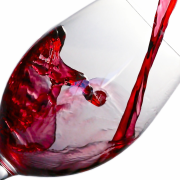
On 29 May at 12pm CET, the OIV will hold a webinar on how the pandemic hit the Southern Hemisphere during the grape harvest. 5 speakers from the Southern Hemisphere will explain how the vitivinicultural sector adapted to the situation on short notice to ensure the continuity of the grape harvest, what means and tools were implemented and what consequences it had.
PROGRAMME
In the current situation, it is the role and privilege of the International Organisation of Vine and Wine (OIV) to help inform and support the wine sector. The OIV relies on an international panel of experts from 47 countries and works on sharing and disseminating good practices throughout the world.
Moderated by Antonio Graça, Secretary of the Sustainable Development and Climate Change experts group of the OIV (Portugal), this webinar will bring together five speakers from Argentina, Australia, Chile, New Zealand and South Africa to discuss the challenges of managing the COVID 19 crisis at grape harvest time in the Southern Hemisphere.
SPEAKERS
Tony Battaglene, Australia
Chief Executive of Australian Grape and Wine Incorporated
Jeffrey Clarke, New Zealand
General Manager Advocacy & General Counsel of New Zealand Winegrowers
Yvette Van Der Merwe, South Africa
Executive Manager, South Africa Wine Industry Information and Systems (SAWIS)
Aurelio Montes, Chile
President, Wines of Chile
Daniel Rada, Argentina
Director, Argentine Wine Observatory / Professor of International Economics, National University of Cuyo, Argentina
MODERATOR
António Graça
Head of Research and Development at Sogrape Vinhos SA, Secretary of Sustainable Development and Climate Change experts group - OIV
REGISTRATIONS
OIV Webinar [EN]
Friday 29 May 12 pm (CET)
Please register here
About the speakers

Tony Battaglene is the Chief Executive of Australian Grape and Wine Incorporated (Australian Grape & Wine). Australian Grape & Wine is Australia’s national association of grape and wine producers, representing their interests at the national and international level. Australian Grape & Wine was incorporated on 1 February 2019 after Winemaker’s Federation of Australia (WFA) and Wine Grape Growers Australia merged to form a single representative body. Prior to taking on the Chief Executive role at Australian Grape and Wine, Tony Battaglene was Chief Executive of WFA.
Vice president of the Economy & Law OIV commission Tony Battaglene as had a distinguished career working in the research, policy and agri-political space. He has worked as a scientist and economist before moving into a policy role with the Australian government.

Jeffrey Clarke has been General Manager Advocacy & General Counsel of New Zealand Winegrowers since 2014. New Zealand Winegrowers is the unified national organisation for all of New Zealand's winemakers and independent grape growers. The organisation currently has approximately 700 grower members and 700 winery members.
He is a Vice-President of FIVS (International Federation of Wines and Spirits), represents New Zealand industry at meetings of the International Organisation of Vine and Wine, and is a Director of The Tomorrow Project, a social change charity working to make responsible drinking the norm in New Zealand.

President of the Expert group on Economic analysis, markets and consumption under the Economy Commission at the OIV, Yvette van der Merwe is the Chief Executive Officer of South African Wine Industry and Systems (SAWIS). She deals with certification of wine in terms of the Wine of Origin Scheme of the Liquor Products Act and the management of statistical information in terms of the Marketing of Agricultural Products Act.

Aurelio Montes is a graduate Agricultural Engineer from the Catholic University of Chile and a renowned Chilean oenologist. He is a pioneer in hillside plantations in Chile and contributed to the recognition of Chilean wines abroad. Aurelio's own winery, Montes Wines, pays specific attention to the development of a sustainable culture at all stages of the production process. He also worked on wine-growing regions that were originally not planted with vines and explored new areas to cultivate vines.

Graduated in Economics, Daniel Rada is Tenured Professor of International Economics at the Faculty of Economic Sciences, of the National University of Cuyo, and Lecturer in International Monetary Economics at the same university.
From 2008 to 2014, he worked as Assistant General Manager of the Corporación Vitivinícola Argentina (COVIAR), in charge of the Administration and Financial Management. During this period, he was involved in issues related to the wine industry, addressing aspects of corporate strategy development, sectoral studies, monitoring of the strategic plan (development of goals, indicators, etc.), project evaluation and development of information on the vitivinicultural sector.
He was in charge of the formulation and implementation of the Argentine Wine Observatory project and is currently its Director.
About the moderator

António Graça is the Head of Research and Development at Sogrape Vinhos SA. He holds a MSc. degree in Oenology. In 2009, he cofounded PORVID - Portuguese Association for Grapevine Diversity, being in its Board of Directors since. He acts as Secretary with the Sustainable Development and Climate Change expert group of the OIV. He assisted in the creation of the first European research agenda for the wine industry by the CEEV - Comité des Entreprises Européennes de Vin, published as position paper in 2016. Antonio has published several scientific works, co-authored OIV expertise documents and is currently focusing on genetic resources conservation, climate change adaptation, resilience and precision management of production systems.

The International Organisation of Vine and Wine regrets to inform you of the cancellation / postponement of the 43rd World Congress of Vine and Wine that was to take place in 2020 in Santiago, Chile. We also received information from Uzbekistan expressing its wish to postpone the congress scheduled for 2021 in Samarkand.
The World Congress of Vine and Wine represents a key moment in the life of the OIV. Usually held every year at the invitation of one of the 47 Member States, congresses are a place for scientists of different backgrounds to meet and exchange views and knowledge. The results of work in the fields of viticulture, oenology, economics and regulatory development of the sector are presented, as well as food security and health impacts.
For 2020, Scientists around the world were invited to present their work and share their experiences in Chile about "Adaptation to new scenarios: production, social and market challenges.”
The OIV is working on a way to promote these congresses in another format to compensate for the cancellation of these meetings in the next two years. More information will be communicated in due time.
In the meantime, you can consult the book of abstracts of former congresses here.
On behalf of the Organising Team in Chile and the OIV Secretariat, we thank you for your attention and hope to see you at the next World Congress of Vine and Wine.
We remain available for any further questions on this subject at papers[at]oiv.int
Stay well, keep safe, all the best from the OIV.

In an effort to keep the pace of the digitalisation process that is currently affecting all sectors of the economy, including the international public sector, the OIV intends to contract a consultant/partner to collaborate on the design and planification of a comprehensive and detailed strategy of digital transformation of the organisation.
Behind this project there is the awareness that the OIV needs a global view on IT projects to update and optimise its capacity and efficiency in terms of both internal/external communication with its stakeholders and data/information management.

In an effort to adapt to the current exceptional situation, the OIV is introducing derogatory measures concerning the geographical dispersion of jurors in international competitions.
The OIV supports the activity of the wine sector by inviting wine competitions to rely on national tasters during this transitional period. Anxious to convey a strong institutional message in these difficult times, the OIV not only allows, but urges the organisers to call on national tasters with proven experience of international competitions. This institutional response is part of an awareness of the need to reduce travel so as to limit the spread of the virus.
This temporary derogation measure runs from 6 May 2020 to 31 December 2021.